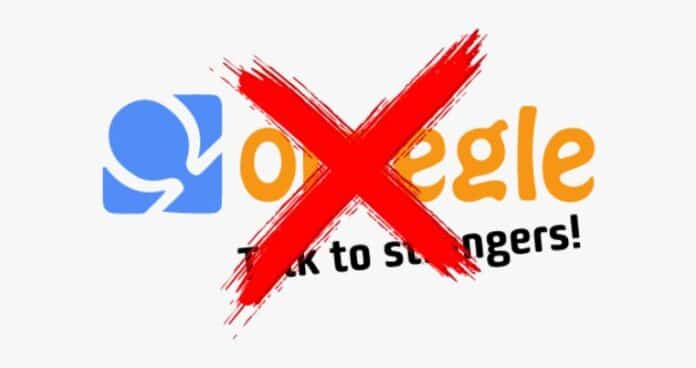A survivor of child abuse, known by “Alice” or “A.M.” in court documents, has successfully forced the controversial chat site, Omegle, to shut down. Speaking exclusively to the mainstream media, Alice revealed that she demanded the website’s closure as part of an out-of-court settlement, marking the end of her years-long fight for justice.
Taking Down Omegle sans Legal Route
The survivor launched her lawsuit in 2021, detailing the digital exploitation she experienced at the hands of a convicted pedophile named Ryan Fordyce. Alice expressed how she was manipulated into unspeakable acts as a child. He had collected over 200 images and videos of her when she was 11. He also coerced her to carry out various sexual acts over 3 years of abuse. Fordyce was sentenced to 8 years in prison in Canada for victimizing multiple girls, meeting and grooming some of them on Omegle.
In her pursuit of justice, Alice initially aimed for a 22 million USD compensation through a jury trial. However, she ultimately decided to settle out of court for an undisclosed sum earlier this month, emphasizing that achieving the site’s shutdown was a crucial victory that may not have been possible through a traditional legal route.
No Regulation in the Wild
Omegle, launched in 2009 by Leif Brooks, gained infamy for allowing users to “talk to strangers” through video chats. The platform, with approximately 73 million monthly visitors, lacked age verification and adequate moderation, leading to a reputation for facilitating wild and sometimes sexual encounters online.
The site’s popularity surged during the pandemic lockdowns in 2020, serving as an outlet for isolating adults. However, it quickly became a breeding ground for predatory behavior. Despite numerous disturbing cases and calls from child protection organizations, Omegle remained largely unregulated.
Alice’s case challenged the common dismissal of social media lawsuits under Section 230. Her attorneys successfully argued a Product Liability lawsuit, claiming the site’s defective design made harm foreseeable. This new approach has become a popular trend, as seen in similar lawsuits against mainstream platforms such as Instagram and Snapchat.
Furthermore, Alice’s case sets a precedent by holding a social platform liable for child trafficking. The court ruled that Omegle could be held accountable for benefiting from the rampant predation on its platform. Child protection organizations, including the Internet Watch Foundation, welcomed the end of what they termed a “dangerous website.”
A Tough Battle
Alice discussed the massive toll her fight for justice took on her life. The legal battle against Omegle was not easy as she faced multiple attempts by the platform’s legal team to dismiss the case. In a statement, Brooks argued that shutting down the chat site is an attack on internet freedom.
Despite repeated requests from the media, Brooks refused to give a recorded interview since 2021. The investigation revealed that Brooks operated the website with no registered staff from his lakeside home in Florida.
In his closing statement on Omegle’s homepage, Brooks claimed there was a significant amount of moderation behind the scenes, including state-of-the-art AI and human moderators. However, Brooks later closed the service, acknowledging the human cost of Omegle and thanking Alice for her role in bringing attention to the issue.
Despite the victory, she found it impossible to return to normalcy, but expressed gratitude that Omegle no longer dominates her thoughts.
Struggle to Make Internet a Safer Place
Alice’s case against Omegle sheds light on a broader issue of predatory behavior on chatting apps and websites. Similar cases have emerged, leading platforms such as Instagram and Snapchat to face Product Liability lawsuits. In 2019, a man in California was sentenced to 25 years in prison for using Instagram to groom and sexually abuse a 13-year-old girl. In 2020, a woman in New York was sentenced to 10 years in prison for using Snapchat to distribute child pornography.
A 2022 report by Cybertip.ca, a Canadian organization, revealed that Instagram and Snapchat were the two most common platforms used to facilitate child sexual exploitation. The report found that 42% of reported incidents occurred on Instagram and 38% on Snapchat.
The prevalence of predatory behavior on online platforms is a widespread concern. The closure of Omegle serves as a significant development in the ongoing efforts to tackle online predatory behavior and protect vulnerable users. The growing pressure forced Meta-owned Instagram to update its privacy policy in 2021 to protect teenagers on its platform. It made users below the age of 13 unable to create an account. Furthermore, the users aged 16 and above would have a private account by default.


